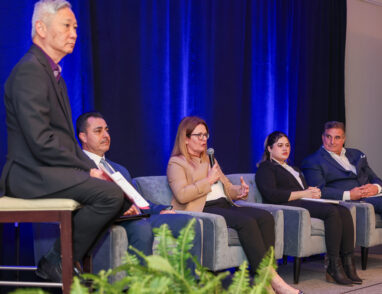LTSS Limelight: An NCQA State Affairs Public Policy Blog Series
September 7, 2021 · Matt Brock
Series Introduction
A recent Health Management Associates (HMA) RoundUp article authored by Arizona for Better Medicaid inspired NCQA’s State Policy team to keep the Long-Term Services and Supports (LTSS) insights flowing. The article showcases how “Managed LTSS Improves Quality of Care.” We have a long list of insights to add, so we are launching this new blog series we’ve called LTSS Limelight. 
This quarterly blog series will not only provide deeper insights into how States are faring in their move to Managed Medicaid Long-Term Services & Supports (MLTSS), but also how they are optimizing delivery of LTSS in the fee-for-service world as well. NCQA continues its effort to support state quality initiatives through the development and enhancement of LTSS quality program standards and measures. With the evolving landscape of LTSS and the intersections between LTSS and Home and Community Based Service programs, we feel the timing for this series couldn’t be better!
As the article highlights, the shift to MLTSS is a slowly, but surely growing phenomenon that has potential to significantly improve Medicaid member experience, help states manage costs and improve health outcomes. Though MLTSS isn’t the only successful model around, we thought launching the series with a strong level-set on MLTSS is a good place to start.
To kick things off, here are our TOP 5 Stats & Facts on MLTSS from the July article with a couple of noteworthy State Spotlights:
- Today, 40 states delegate Medicaid benefits to managed care organizations, while 23 states and counting, delegate MLTSS through managed care contracts
- MLTSS enrollees had 28% higher odds of responding favorably to questions related to experience of care and quality of life compared to FFS beneficiaries.
- Seven states (Arizona, Florida, Kansas, New Jersey, Massachusetts, Minnesota, and Tennessee) reported that their MLTSS programs improved the physical health of consumers enrolled.
- In 2018, CMS partnered with NCQA to develop a set of Healthcare Effectiveness Data and Information Set (HEDIS) measures specifically for MLTSS. (Non-shameless plug)
- Seven states (Florida, Iowa, Massachusetts, New Jersey, New Mexico, Rhode Island, and Tennessee) reported that their MLTSS programs were helping to reduce the rate of growth in Medicaid expenditures.
The Spotlights on Tennessee & Virginia
- TennCare integrated LTSS into its managed care program in 2010 under a 2009 CMS waiver approving the TennCare CHOICES in Long-Term Services and Supports program. This program serves older adults and individuals with physical disabilities.
- The number of individuals receiving HCBS on the last day of 2018 was 151% higher than the number of individuals receiving HCBS the day before CHOICES was implemented, suggesting that the transition to managed care led to rebalancing.
- Consumer satisfaction with TennCare has exceeded 90% since 2011, with a rating above 94% in 2019.
- Virginia launched its statewide MLTSS program, Commonwealth Coordinated Care (CCC) Plus, in August 2017, implementing the program statewide by January 2018. The program operates under a 1915(b)-waiver authority and contracts with six MCOs.
- In a 2019 survey of CCC Plus beneficiaries, 90% were satisfied with the services provided by their health plan, including 40% who were very satisfied and 50% who were satisfied.
The pandemic has motivated greater shifts in state and federal dollars to LTSS and HCBS programs. It is happening with a mission to support better access and lower costs of care, while addressing the need to integrate critical clinical and non-clinical determinants of health, ideally in the consumer’s most preferred care setting, in the home. Better access. Better care coordination. Better care. This is no small feat, but States are championing the cause and we are here to help.
Six states mandate the use of NCQA’s LTSS Distinction standards. Tennessee, Virginia, North Carolina, Pennsylvania, Kansas and most recently, the state of Arizona. Alabama empowered their Area Agencies on Aging by investing state resources in the Agencies’ efforts to earn NCQA’s Accreditation of Case Management for LTSS. Massachusetts supports the very same program as an option for Adult Foster Care agencies.
We hope you enjoy this first of its kind, LTSS Limelight blog. Please stay tuned for our next series entry to get deeper insight into how states leverage NCQA’s standards to support their quality strategies for populations in need of LTSS.
You won’t want to miss it!








